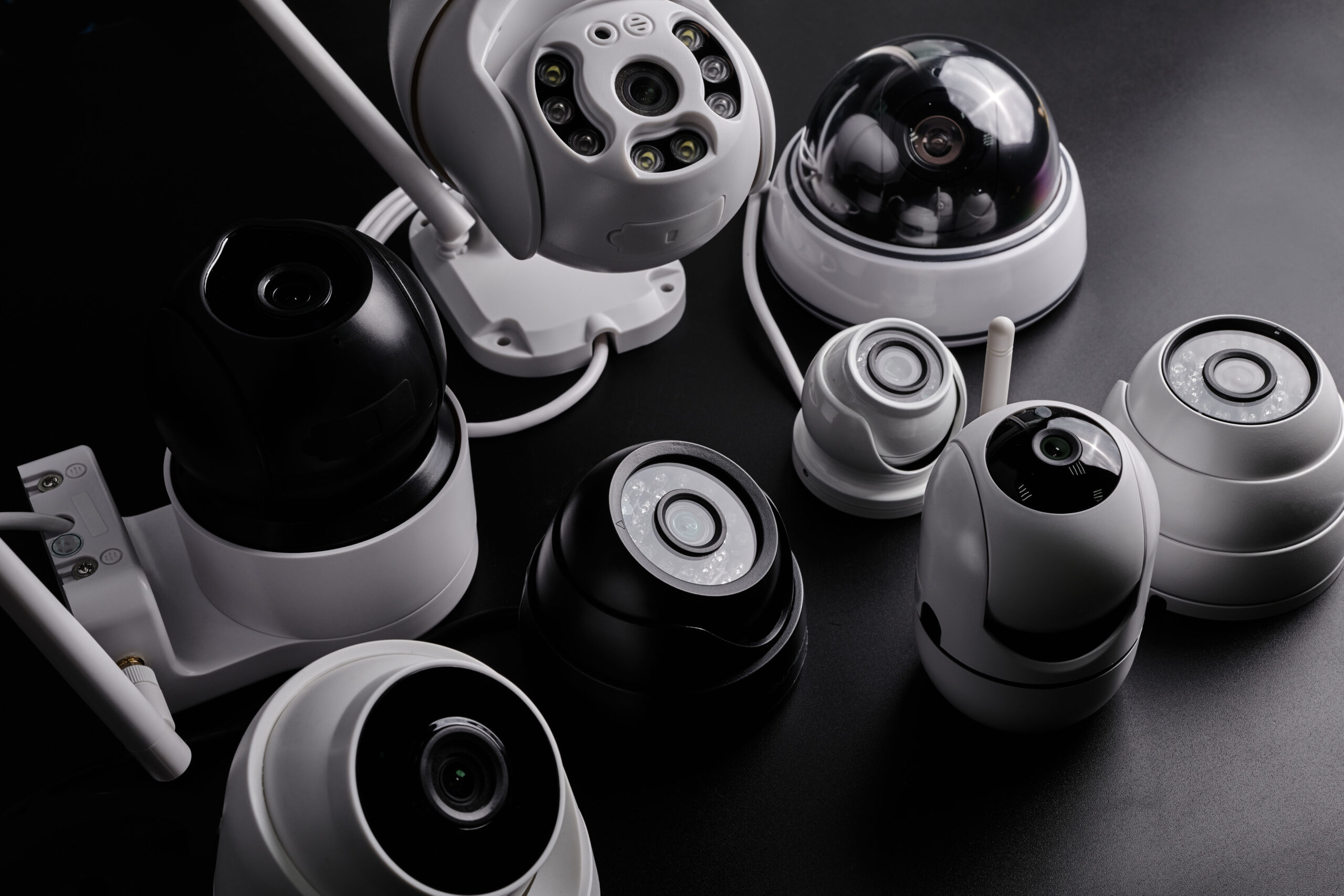Home Security Systems Wired vs Wireless Guide

Securing your home is a top priority, and deciding between wired and wireless security systems is an important choice. Both offer unique benefits that appeal to different needs. For those wanting robust monitoring and reliability, wired systems provide stable connectivity. But for flexibility and scalable installation, wireless allows more freedom.
To pick the best option for your space, compare key features like video quality, vulnerability, setup ease and more. Understanding the main pros and cons of each, will reveal which balances protection and convenience for your priorities. The ideal system is out there – keep reading to bring you one step closer finding it.
Key Takeaway
- Wired systems are reliable and stable but can be harder to install.
- Wireless systems are easy to install and offer advanced features.
- Power outages can affect wired systems, while wireless systems use batteries.
Wired Home Security Systems
For people who want a sturdy and dependable security system, wired options are the tried and true choice. Wired systems use cables to connect all the devices – cameras, sensors, alarms. This makes them very reliable [1]. One great benefit is they can send crystal clear video signals over long distances without losing quality. So wired systems are perfect for larger properties or watching multiple buildings.
Since wired systems plug into the home’s electricity, there’s no need to change batteries. But if the power goes out, the system will stop working unless there’s a backup generator.
The downside is that installing wired systems can be tricky. Running all those wires through walls and ceilings usually needs professional help. It takes more time and money, but for many homeowners the rock-solid reliability of wired systems makes it worth the effort.
Wireless Home Security Systems
For people who want flexible and easy security systems, wireless is the way to go. Wireless systems use radio waves instead of wires to connect devices. This means cameras, sensors and alarms can be placed anywhere without complicated installation. So wireless systems are great for spots where wired just won’t work. And that’s why 70% of homeowners choose wireless option today [2].
Installing wireless systems is usually faster and easier than wired. Many homeowners can set them up themselves without needing professional help. This DIY factor is perfect for renters or anyone wanting a security system they can take with them if they move.
One downside is that wireless systems run on batteries to power the devices. Users need to regularly check and replace dead batteries to keep things running. If the batteries die, the system stops working. But wireless keeps going even during power outages thanks to the battery backup.
Lots of wireless systems also have handy features like sending alerts to your smartphone and letting you check your home from anywhere.
For flexibility and convenience, wireless security gives big benefits that make it the right choice for many homeowners today.
Comparing Features
When deciding between wired and wireless security systems, looking at their features can help you choose. Both types offer important things like motion sensors, door sensors, and security cameras. But there are some key differences to think about.
Signal Strength – Wired systems are known for their super stable signals because they use cables. This means they rarely lose connection. Wireless systems can sometimes have spotty signals from interference or obstacles blocking the signal.
Fancy Features – Wireless systems often have cool extras like night vision cameras that can see in the dark. They also easily connect with smart home devices so you can control things with your phone. Wired is reliable but doesn’t usually have high-tech features.
Cost – Wired can cost more upfront since professionals are needed to install the wires. Wireless can be cheaper to set up at first, but you’ll need to budget for buying batteries and monitoring fees down the road.
Looking at these things helps you pick the security system that fits your home best.
Pros and Cons
Figuring out the right security system means looking at the good and bad of both wired and wireless. Here’s a quick rundown of their pros and cons:
Wired Systems
Pros:
- Super reliable, stable signals that consistently work
- No batteries to change means less maintenance
- Harder for burglars to disable since they use physical wires
Cons:
- Installation can be tricky – may need pros to help
- Won’t work if power’s out unless there’s a backup source
Wireless Systems
Pros:
- Easy and quick for DIY installing – no wires to run
- Flexible placement of devices anywhere
- Keep working during power outages thanks to battery backup
Cons:
- Need regular battery checks and changes
- More vulnerable to hacking or signal interference
Looking at the pluses and minuses of both helps homeowners pick the security system that best fits their needs and lifestyle.
What to Consider

Picking between wired or wireless security comes down to thinking about what you really need. Here’s some key things to keep in mind:
Installation – Do you want a simple, DIY setup or are you okay with a more complicated install? Wired often needs pros to help, costing time and money.
Reliability – Is it critical to have a system you can count on 24/7? Wired is usually more reliable. Wireless can have issues from dead batteries or signal problems.
Features – Are fancy features like controlling things from your phone important? Wireless tends to have more modern perks that add convenience.
Budget – Look at both upfront installation costs and ongoing costs like batteries or monitoring fees. Wired may cost more initially but avoid some long-term battery expenses.
Figuring out your personal priorities around these factors will help you land on the security system that’s the right fit for your home and lifestyle.
FAQ
What’s the best security setup for different homes, and how do control panels work with each type?
The best wired systems excel in larger homes where you need to transmit data over long distances through coaxial cable or ethernet cable. The best wireless options with a central hub work great in smaller spaces. Both systems offer control panels for managing your security, but wireless panels connect through your wi fi network while wired ones use a wired connection.
How do systems handle power outages, and what backup options like solar power exist?
During power outages, systems that rely on power supply might stop working. Solar powered options offer backup, while battery operated devices keep running. Wireless systems using battery powered components often continue working during blackouts. Modern systems, whether using POE technology or battery life backup, give you peace of mind by maintaining security even when the power’s out.
What’s the real deal with storage options for camera footage and video recording?
Your camera footage storage choices include cloud storage or a video recorder through a central hub. Wireless cameras often use cloud storage, letting you watch in real time through a mobile app. Systems offer different ways to receive alerts and review video and audio. A full bio of recordings stays accessible whether you’re using wired cameras or wireless camera setups.
How does DIY installation compare between wireless and wired systems?
Wireless security is known for system is easy setup – DIY installation usually takes just hours. Running cables for wired camera systems needs more planning. Wireless sensor installation is straightforward, while wired systems require careful placement of coaxial cable or ethernet cable. Both systems work with window sensors and motion detectors, but installation complexity varies.
How do wireless sensors and motion detectors connect to your system?
Wireless sensors and motion detectors use battery power and wireless signals to connect to control panels. Alarm companies typically offer both wireless and wired options. Wireless network connections power your wireless cameras, while wired ones use POE technology for data and power. Some systems offer solar power options for outdoor cameras.
What should I know about connecting multiple cameras and keeping signals strong?
Wired cameras connect through physical links, providing stable video and audio. Wireless cameras rely on wireless signals and your wi fi network. Multiple cameras affect system performance differently – wired systems work through direct connections, while wireless cameras connect through your wireless network. Consider how many cameras require monitoring when choosing your setup.
How do mobile apps and real-time monitoring work with different systems?
Both security camera types let you receive alerts through a mobile app. Systems offer various ways to check camera footage and control your alarm system remotely. Whether using wireless signals or wired technology, you’ll get peace of mind knowing you can monitor your home from anywhere.
What are the long-term costs when comparing power and battery needs?
Battery powered systems require regular maintenance, while wired ones systems rely on your home’s power supply. Storage options, like cloud storage or a video recorder, add different costs. Alarm companies often include monitoring in their plans, whether you choose wireless camera or wired security setups.
What are the main drawbacks of different security system types?
The cons of wired systems include complex installation and running cables throughout your home. Wireless systems require battery life management. Both systems work effectively but differ in how they transmit data and connect to control panels. Your doorbell camera can integrate with either type, sharing the same network as your other cameras require.
How do doorbell cameras fit into a complete security system?
A doorbell camera can function with either setup, connecting to your system’s control panels. They can share your wireless network or wired connection, letting you receive alerts alongside other camera footage. This works whether you’ve got wireless cameras or a wired system, creating a complete security solution that’s easy to monitor.
Final Thoughts
Wired security systems offers rock-solid dependability, while wireless provides flexibility. Focus on your top priorities – if robust performance is key, wired has you covered. If easy installation and mobility matter more, go wireless. Evaluate your lifestyle, home setup and budget to determine whether stable wired or adaptable wireless aligns best. By understanding these key differences, you can pick the ideal system to help protect your space with the right balance of security, convenience and customization.
References
- https://www.vivint.com/resources/article/wired-vs-wireless-security-systems-which-right-for-you
- https://www.safewise.com/home-security-faq/wired-vs-wireless-security/